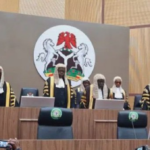
Accord to him, "the fact is, Africa faces much higher costs for aircraft purchases due to the relatively small size of most airlines, weak balance sheets for corporate loans, a lack of access to export credit agreements, higher insurance costs, inability of commercial banks to provide long term financing, and very high interest rates when they do."
"Africa also does not have any aircraft leasing markets, and therefore has to lease planes at much higher costs, sometimes 100 percent higher than developed economies. There is a compelling need to address market failures in aircraft financing" he noted.
"Availability of aviation infrastructure varies across Africa. North, East and Southern Africa have established hubs in Cairo, Addis Ababa, Nairobi and Johannesburg. West Africa on the other hand, lacks a major and effective hub, something Nigeria, Côte d’Ivoire and Togo should help build. As the largest economy in Africa, Nigeria should lead the effort and be the integrator for regional air travel" said.
Dr. Adesina also said "Africa faces huge infrastructure challenges which affect the aviation industry, including airfields (runways, taxiways and aprons), high cost of jet fuel due to a poor supply infrastructure, poor airfield ground lighting which limits the time for operations, further affecting safety and airline economics. In many instances, African pilots have ingeniously learnt how to land airplanes at night without electricity, even with flash lights! Therefore, we must do all possible to light up and power Africa."
"Africa must implement the 1990 Yamoussoukro agreement for open skies. While 20 countries have signed on, the 27-year old accord still faces implementation challenges. Rigid bilateral air service agreements have made it difficult to liberalize the regional aviation markets. We must make regional aviation markets competitive and drive down costs, raise efficiencies and improve connectivity and convenience" he emphasized.



